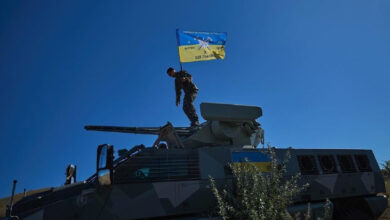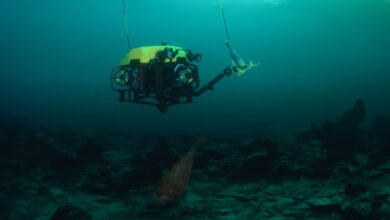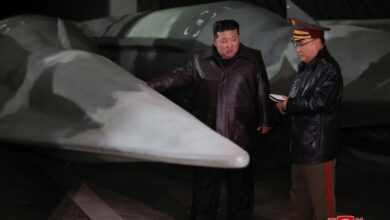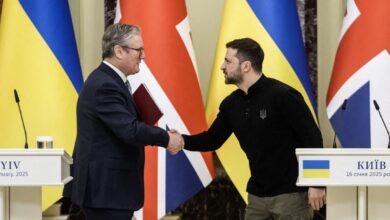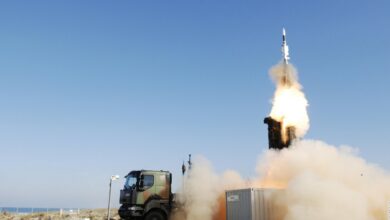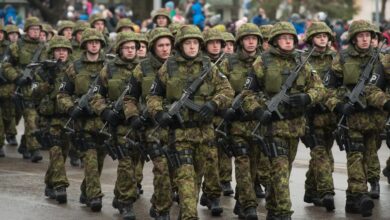
In a world of information overload, the prospect of a media series lasting months on end might sound a bit daunting. Fortunately, when it comes to the war in Ukraine, there’s no need for a marathon session.
In a pinch, your basic primer on the background, current situation, and possible outcomes of the war can be covered in an afternoon.
Below are five separate episodes from an equal number of podcast series. Taken consecutively, these are guaranteed to widen anyone’s perspective, as well as providing a heads-up on high-quality media offerings within the United States and beyond.
Part 1: History of Russia and Ukraine
Arguably, the history of Russia or Ukraine should go back over 1,000 years to Kyivan Rus’, a federation that inspired myths of origin for both countries. For now, though, the last 30 years may seem more pertinent.
Begin with Rear Vision, an Australian radio show that splices archival recordings next to expert interviews and informed commentary.
Their episode on Ukraine was broadcast four days before the invasion began and, for that very reason, it offers a detached perspective on NATO expansion, the post-9/11 moment, and the Russo-Georgian War of 2008.
Are these topics still relevant? The Russians and Ukrainians would say that they are.
Part 2: The Invasion
Putin’s decision to invade caught many by surprise, among them the Chinese American photojournalist Alan Chin. In an interview with podcaster Scott Carrier on his show Home of the Brave, Chin recalls what it was like in Ukraine during that moment.
He clarifies that whereas Ukrainians and Russians have much in common, it would be mistaken to assume that they are one and the same people. Austria and Germany share a common language, but they are comfortable as separate nation states. Russia has yet to accept that this may be so for Ukraine.

Chin is especially strong when discussing whether and how a national infrastructure can keep going in wartime. Ever wondered how Ukrainian householders get their food, medicine, and pension payments in these troubled times? This man has the answer.
Part 3: Getting Out of Ukraine
A serious danger with podcasts is that seasoned foreign correspondents and major-league commentators drown out the voices of ordinary folk. To guard against this, listen to “Saving Ukraine’s children,” part of the BBC series OS Conversations.
Although no children get interviewed, we do get to hear from Pastor Gennady Mokhnenko, a chaplain who speaks movingly about his experiences running an orphanage.
Listener discretion advised: his descriptions become impassioned when recalling failed attempts to take children out of the besieged city of Mariupol, an act that the Russian soldiers would not permit.
The second half of the podcast switches focus to a young married couple, Olha and Andrii, one of whom now resides in Canada while the other remains in Ukraine.
Part 4: Russian Opposition to the War
Listening to those whose lives have been turned upside-down by war, it becomes easy to nurture bitterness on their behalf. But not all Russians follow the Kremlin line and some expatriates have taken advantage of the liberties they enjoy to express opposition to the war.
Among these, composer Tatiana Riabinkina was moved to write two anti-war pieces, one of which premiered in Wellington, New Zealand, on May 13.
In an interview for Radio New Zealand’s Standing Room Only, she talks about the feelings of sadness and fear that welled up in her once the invasion began, and notes her good fortune in living in a country where people understand that Russian civilians aren’t to blame.
Is it necessary for whole years to pass for artists to gain enough perspective on a war? Not necessarily.

Part 5: Possible Future Implications
The final podcast interlinks the war in Ukraine with what may lie ahead: China’s invasion of Taiwan, widely predicted but by no means guaranteed.
In an interview on the Hoover Institution’s podcast Common Knowledge, historian Stephen Kotkin delivers a rousing trumpet-blast for Western values and admits that he, like many others, underestimated the unity that has emerged in the face of Vladimir Putin’s aggression. The West, it seems, is not the frightened little mouse it had imagined itself to be.
Taiwan’s tallest building, Taipei 101, has decked itself out in the colors of the Ukrainian flag in a combined gesture of solidarity and intentionality.
Yet Professor Kotkin is quick to note the differences between Ukraine and Taiwan’s geostrategic location. Would a seaborne invasion awaken stiff and unified resistance among the Taiwanese? Events might take another turn, but, if they don’t, the Ukrainians have set the standard.
 Daniel McKay is a former member of the Graduate School of Global Studies, Doshisha University.
Daniel McKay is a former member of the Graduate School of Global Studies, Doshisha University.
He has published full-length scholarly articles in outlets such as Common Knowledge, Comparative American Studies, Journal of American Studies, and Positions: East Asia Cultures Critique.
The views and opinions expressed here are those of the author and do not necessarily reflect the editorial position of The Defense Post.
The Defense Post aims to publish a wide range of high-quality opinion and analysis from a diverse array of people – do you want to send us yours? Click here to submit an op-ed.





